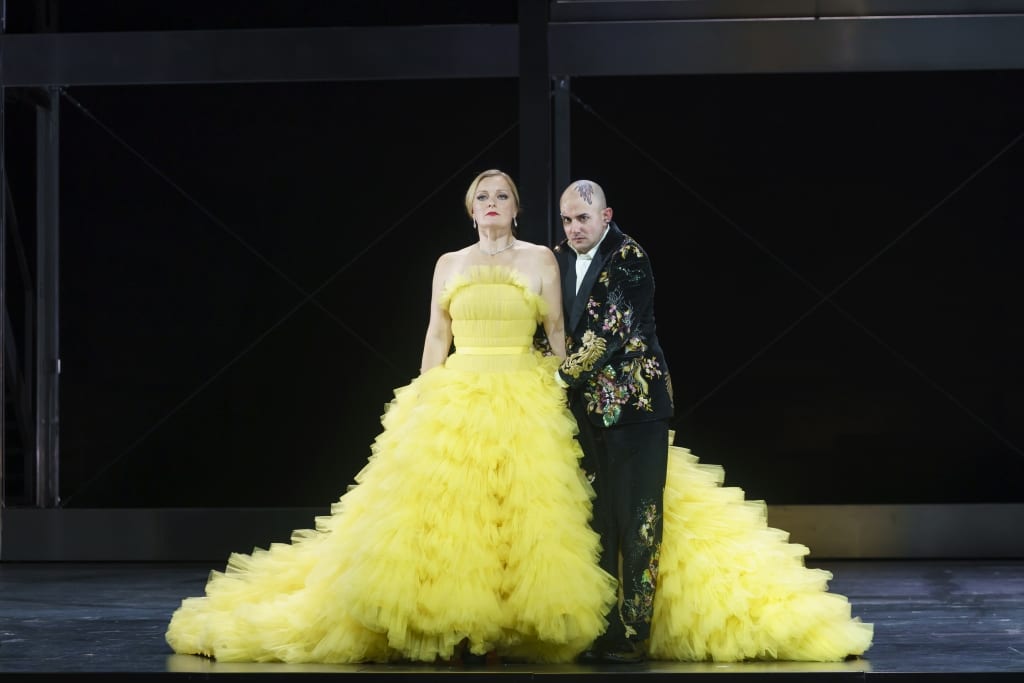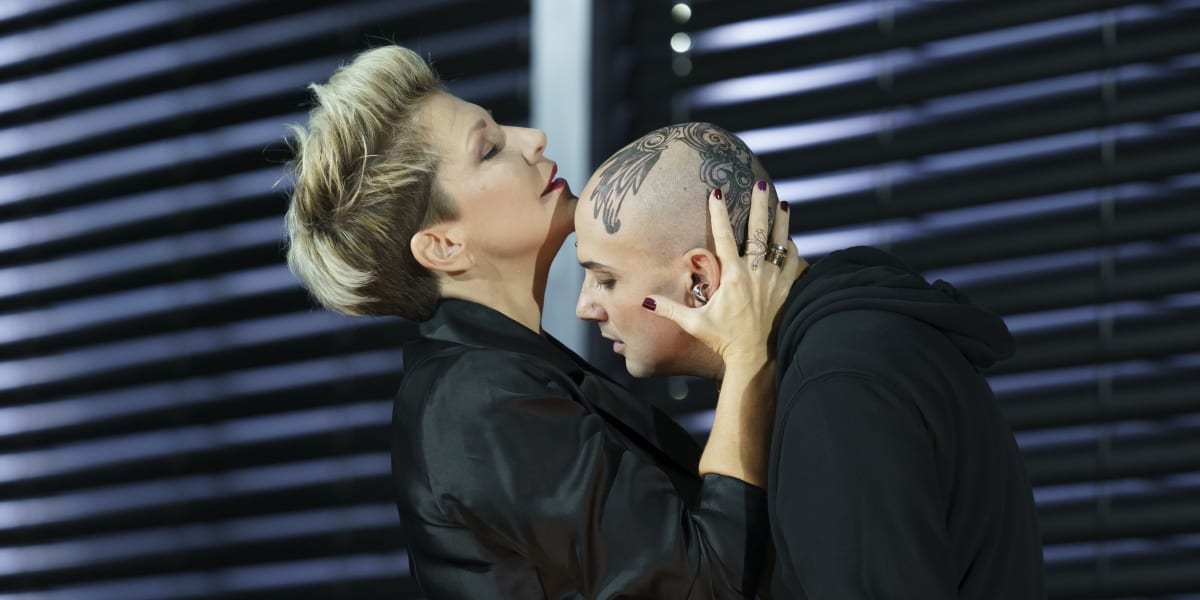Of all the German composers in the 18th Century, Music by Handel epitomises the most European-ness; written in just 21 days, Agrippina was his first major operatic success. With this libretto perhaps Handel saw an opportunity to have his work staged during the Venice Carnival on Boxing Day in 1709 at the Teatro San Giovanni Grisostomo owned by Grimani himself. It is therefore fitting that the Royal Opera House should stage this work 310 years after its inception in Venice, given that Handel is one of their ‘house composers’.
In this anti-heroic comedy of the opera-seria genre, Barry Kosky’s production contemporises and makes the work relevant to our own current political situation: intrigue, power, revenge, sex and violence abound. ‘We are not that far removed from the monstrosities of the Roman world’ says Kosky. Or the intrigues of 18th Century Italy? Surely, for Handel this story had its contemporary resonances then too.
Based on real historical figures, with the exception of Lesbo, the Emperor’s servant, the title role is every bit the scheming diva as depicted in our history books. Her desire and determination to see her son crowned as an Emperor is central in her psychology and dominates the plot. Full of lies, lust, lechery and lots of it, this slick production is both entertaining and daring.
Joyce DiDonato’s splendid Agrippina draws parallels between a femme fatale of a Joan Collins and Glenn Close variety. Her big aria, ‘Pensieri, voi mi tormentate’, in Act II, is more a psychological game than aria with erratic outbursts, unusual orchestral textures and complex rhythmic features. We are reminded of her obsession with power and keeping it at all costs. Her dance-like ‘Ogni vento’ where she plots a trilogy of murders is spine-chilling. It is no surprise that her son, Nerone, superbly sung by Franco Fagioli, is a dysfunctional social misfit.
Fagioli’s ‘Come nube che fugge dal vento’ in Act III, is sublime. Lucy Crowe’s provocative Poppea is convincing not only vocally but also through a display of beautifully choreographed and executed physical gymnastics. Her mesmerising ‘Se giunge un dispetto’ is very rock-chick-cum-sex-kitten. Refreshing ornamentation and orchestration give this musical masterpiece of the baroque era a firm place in the operatic repertory.

The three and a half hours plot revolves around Agrippina’s machinations to see her son becomes the next Emperor. The constant shift between truth and untruth, Shakespearean asides and ad libs suitably reminds us of Handel’s dexterity and versatility.
DiDonato’s cueing of the orchestra and use of a glitzy microphone almost convince us we are at a Lady Gaga concert. Her ‘Grazie Londra’ elicits an eruption of laughter. She is as hilarious as she is convincingly chilling.
Further fine singing from the glorious Iestyn Davies as Ottone with his beauty of tone and timbre in ‘Voi che udite il mio lamento’ Act II, scene 5. There were no disappointments. Needless to say, Agrippina has the final word: she can die happily now her son is crowned Emperor. This encourages us to question our own morals.
Rebecca Ringst’s set was a clever rotating container, with nine cubes morphing into a Hollywood staircase, a tower for power and a lover’s playground. Though minimalist, it allowed us to focus on the various machinations of the characters and of course the sublime music. Dramatically, this is a production full of surprises, stratospherically dramatic vocal triumphs and sexual innuendos (an understatement). Musically, it is utterly compelling and brilliant. This ROH Agrippina is not to be missed. Superb playing from The Orchestra of the Age of Enlightenment under the young Russian Maxim Emelyanychev, who directs from the harpsichord with manic intensity, is at the core of this triumph.

